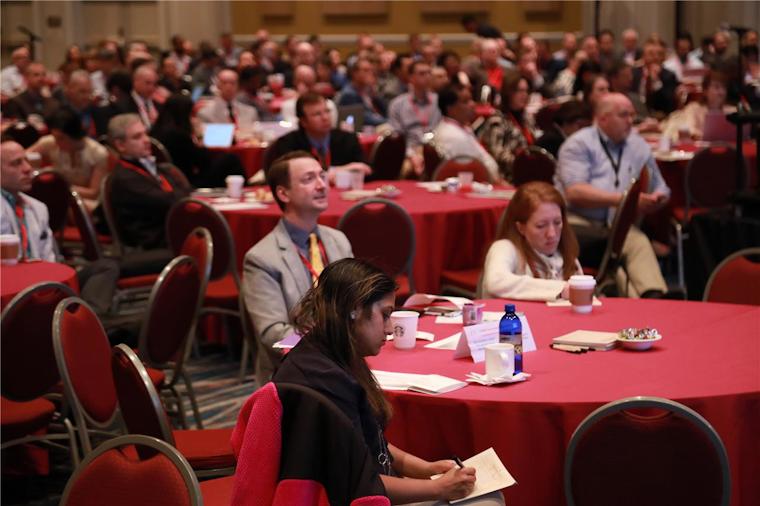For the third year in a row, the Annual Educational Conference is featuring three theme-focused sessions following the Welcome and CEO Address on Friday morning. This year’s conference theme, Engaging Each Other: Transformation through Collaboration, encompasses an array of applications in health care and GME. These three sessions speak to that range, underscoring central issues facing physicians at all levels of experience.
SES001 – Professional Identity Formation in Graduate Medical Education: Helping Residents to Think, Act, and Feel like a Physician
Drs. Richard and Sylvia Creuss’ presentation will encourage attendees to examine their own identities and reflect on experiences that influenced their own professional journeys. The aim of medical education is to provide learners with the knowledge and skills necessary for practice, and to support them in the journey from layperson to professional as they develop their unique professional identity and come to “think, act, and feel like a physician.” Postgraduate training in a specialty exerts a powerful force, adding a discipline-specific identity to each individual’s multiple identities. The presentation will consider the process of socialization that leads to development of a professional identity, emphasizing the social nature of learning and the impact of joining the community of practice that is medicine.
SES102 – Achieving Health Equity: Tools for a National Campaign against Racism
Dr. Camara Jones, who last year gave a powerful Baldwin Seminar at the ACGME offices, will present a Cliff Analogy for understanding three dimensions of health intervention: providing health services; addressing the social determinants of health, including poverty and adverse neighborhood conditions; and addressing the social determinants of equity, including racism and other systems of structured inequity. She will discuss racism as a social determinant of equity and a root cause of race-associated differences in health outcomes. Dr. Jones defines racism as “a system of structuring opportunity and assigning value based on the social interpretation of how one looks (which is what we call ‘race’) that unfairly disadvantages some individuals and communities, unfairly advantages other individuals and communities, and saps the strength of the whole society through the waste of human resources.” She identifies three levels of racism (institutionalized, personally-mediated, and internalized) and illustrates these three levels with her Gardener’s Tale allegory. She will then generalize her discussion of racism to encompass other systems of structured inequity. Defining health equity as assurance of the conditions for optimal health for all people, Dr. Jones posits that achieving health equity requires valuing all individuals and populations equally, recognizing and rectifying historical injustices, and providing resources according to need. Her session will close with a description of the International Convention on the Elimination of all Forms of Racial Discrimination and other specific tools to equip attendees to name racism; ask “How is racism operating here?”; and organize and strategize to act.
SES103 – GME and the Patient Care Dream Team
ACGME Senior Vice President for Institutional Accreditation Dr. Kevin Weiss and colleagues Marjorie S. Wiggins, DNP, RN, NEA-BC, FAAN; Catherine Kuhn, MD; Lakshmana Swamy, MD, MBA; and John Duval, MBA will explore the concept of teaming through the lenses of several different members of the clinical care team, and consider how the GME community can enhance its educational programming around teaming for residents and fellows. Having a highly functioning clinical care team is essential for the best patient experiences and clinical outcomes. The practice of the same people working together as a team is rapidly giving way to the practice of dynamic grouping of different health care professionals around the goals unique to each patient in what has been called “teaming.” Based on findings from the Clinical Learning Environment Review (CLER) Program, there are substantial opportunities to improve the quality of how residents and fellows engage in teaming in their patient care experiences.
Which of these sessions will you attend tomorrow? Tweet @ACGME and let us know what you learned – don’t forget to use the conference hashtag, #ACGME2018!

